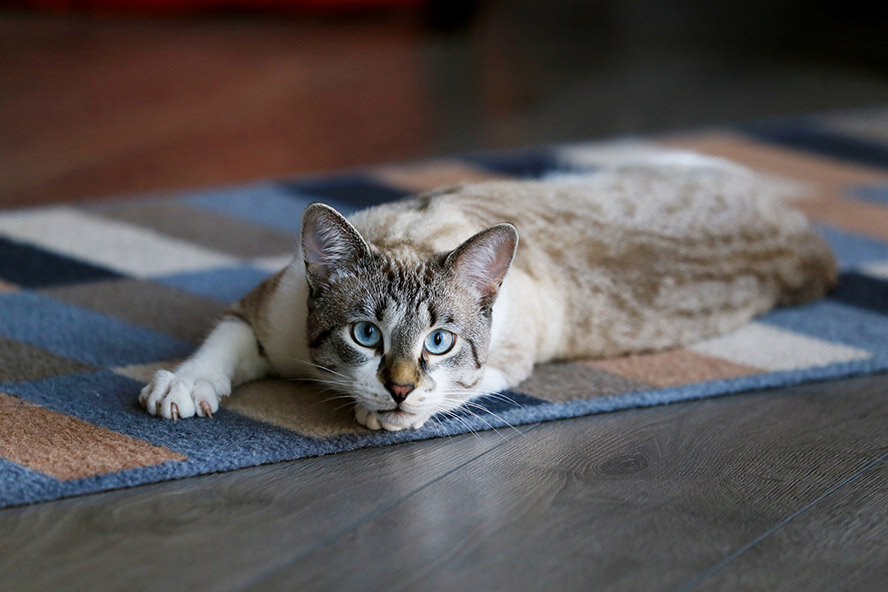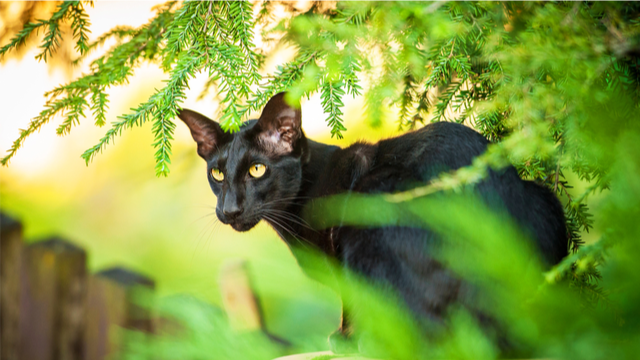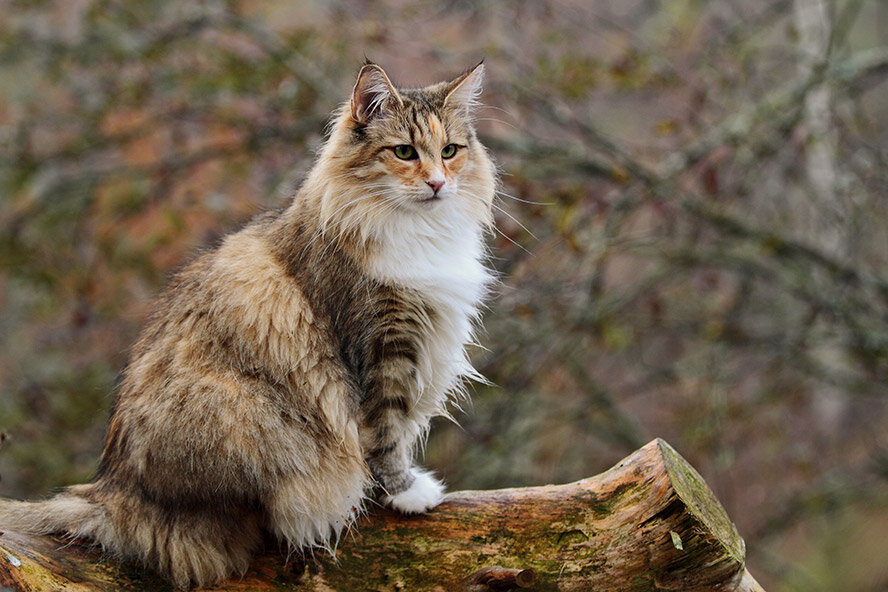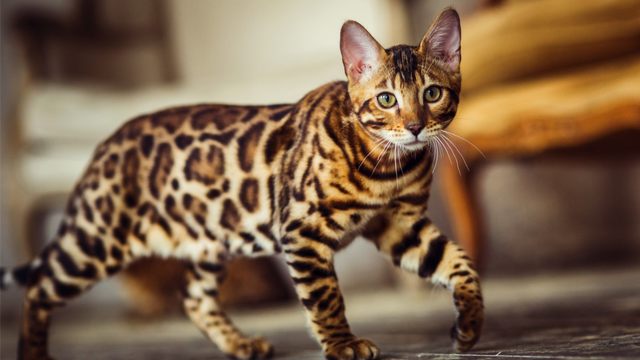cover: Nils Jacobi | Shutterstock
Which cat breed suits me? Keeping cats is no longer limited to their use as mousers. On the contrary: Over the years, more than 40 approved cat breeds with different looks and characters have been created through breeding. You should not only like the look of your future velvet paw, the typical characteristics of the breed must also be adapted to your lifestyle.
Every cat has an individual personality, develops certain preferences in the course of its life and can learn to adapt to family life. However, there are also breed-typical characteristics and traits that fundamentally influence temperament.
Eleni Alina | Shutterstock
Short-haired breeds
Breeds: Abyssinian, Anatoli, Bengal, Burmese, British Shorthair, Chartreux, European Shorthair, Rex, Russian Blue
Short-haired cats occupy the largest group of pedigree cats - and both their temperament and appearance vary enormously. Although the hair of a short-haired cat is comfortably short, its coat needs regular grooming, especially during the shedding season in spring and autumn. The European Shorthair is probably the best known cat breed with many possible colourful coat patterns. It is a large and strong cat that is loved worldwide as a very affectionate and loving domestic cat.
Astrid Gast | Shutterstock
Semi-long-haired breeds
Breeds: American Curl, Maine Coon, Sacred Birman, Somali, Norwegian Forest Cat, Turkish Angora, York, Ragdoll
Typical for the cats of this category is their irregularly long coat, which is longer on some parts of the body and shorter on others. The beautiful hair on the neck, which reminds of a lion's mane, is also striking. In terms of character, you can find very different cats: from the gentle, well-balanced Ragdoll, which wants to be part of everything, to the curious and extremely intelligent Maine Coon with a moderate temperament.
Anne Richard | Shutterstock
Long-haired breeds
Breeds: British Longhair, German Longhair, Persian, Himalayan cat
Long-haired cats usually have a cosy character. Cat lovers appreciate the cuddly nature and balanced temperament of a long-haired cat. However, the lush coat of these beauties, which can be up to 10 centimetres long, makes them very demanding to care for. These breeds have a lot of undercoat, so it is best to brush them daily to avoid matting.
Rita_Kochmarjova | Shutterstock
Siamese and Oriental breeds
Breeds: Balinese, Siamese, Thai, Oriental Shorthair, Havana
You will never get bored with most Oriental cats: they are graceful and elegant beauties who like to get your attention - loudly if necessary. As Oriental cats are not only beautiful, but also extremely temperamental and intelligent, they need a lot of activity and variety. Therefore, these cat breeds in particular need companions in the same household, as proximity to humans is often not enough for these sociable animals.
Elisa Putti | Shutterstock
Forest cats or natural breeds
Breeds: Norwegian Forest Cat, Neva Masquarade, Turkish Angora, Siberian Forest Cat
Actually, the so-called natural breeds are not a strictly defined group of pedigree cats. They are breeds that are considered to be extremely robust, instinctive and long-lived. However, they often grow very large and therefore need a lot of space.
Alexander_Evgenyevich | Shutterstock
Hybrid breeds
Breeds: Bengal, Savannah
Hybrid cat breeds result from breeding a domesticated domestic cat with a wild cat. This results in large cats with unusual coat patterns. Strict regulations apply to the breeding and keeping of hybrid breeds, as complications can arise during mating and birth. After a few generations, however, this effect is weakened and it is a hybrid breed in its own right: a domestic cat with pronounced wild animal characteristics. However, they usually still have a pronounced desire for freedom and are very active - just like their wild relatives.
Jaroslaw Kurek | Shutterstock
Breeds bred to suffer – beautiful at any price
Breeds: Manx, Cymric, naked hair cats (e.g. Sphynx, Bambino), Scottish and Highland Fold
For people unfamiliar with cats, it is usually not obvious at first that the animals are suffering or even in pain. But there are also cat breeds which have to struggle with health problems or behavioural disorders. The fact that these animals exist at all has economic reasons: Since these breeds appear particularly "cute" on the outside, they are popularly acquired. The welfare of the animals, however, takes a back seat.
For the sake of the animals, you should refrain from buying such breeds.
The confidu magazine is written by our veterinarians according to current scientific standards. The articles do not replace a veterinary diagnosis, but are intended to provide you with initial information on many topics related to your animal. If you have specific questions about your pet, our vets will be happy to advise you via the confidu app.












